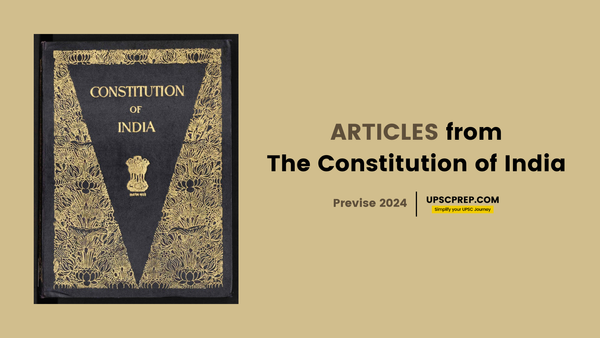Table of contents
The Indian Constitution, the bedrock of our nation's governance, is a dynamic document that can be amended to adapt to changing times.
Recent events in the news have reignited discussions surrounding specific articles within the Constitution.
Understanding these articles and the surrounding debates is crucial for aspirants preparing for the 2025 UPSC Prelims.
Here are a few constantly seen in news:
Article 82
Article 82 of the Indian Constitution deals with the process of redrawing parliamentary constituencies (Lok Sabha seats) after every census.
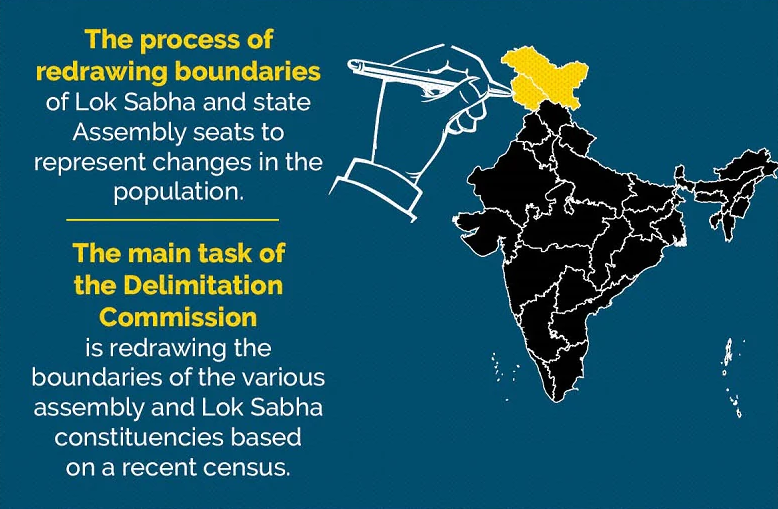


WHY IMPORTANT?
Supreme Court asks Centre to set up Delimitation Commission for proportional representation of Scheduled Castes and Scheduled Tribes (STs).
- Under this, the Parliament enacts a Delimitation Act, which constitutes a Delimitation Commission.
- It is done to readjust the constituencies of Lok Sabha and State Assemblies after every Census.
- The decisions of the commission are considered final and can't be challenged in any court.
- It has been set up four times since independence i.e. in 1952, 1963, 1973, and 2002.
Article 21
Article 21 of the Indian Constitution is a fundamental right that guarantees protection of life and personal liberty. It states that "No person shall be deprived of his life or personal liberty except according to procedure established by law."
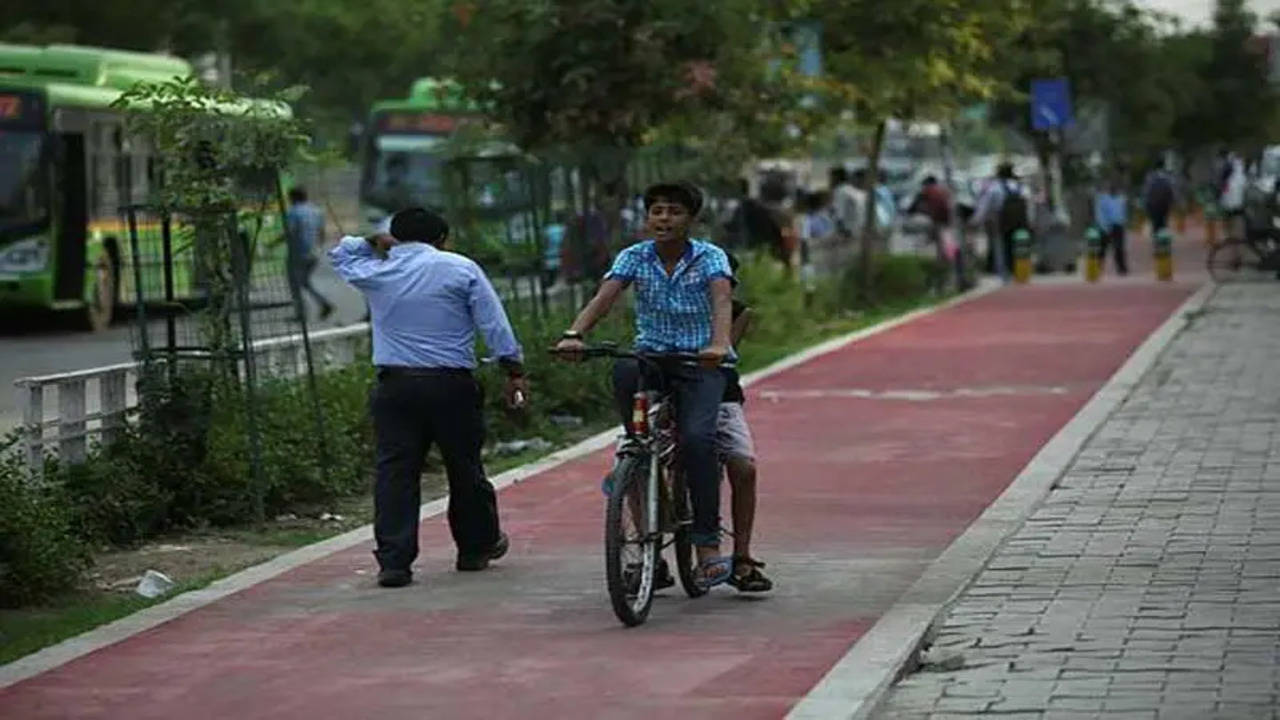

WHY IMPORTANT?
Punjab became the first state to implement the 'right to walk'.
- This makes it mandatory for road construction agencies like the NHAI to create cycle tracks and footpaths in the construction of new roads.
- This can be a solution to reduce deaths related to road accidents.
Article 239
Article 239 of the Indian Constitution deals with the administration of Union Territories (UTs) in India.
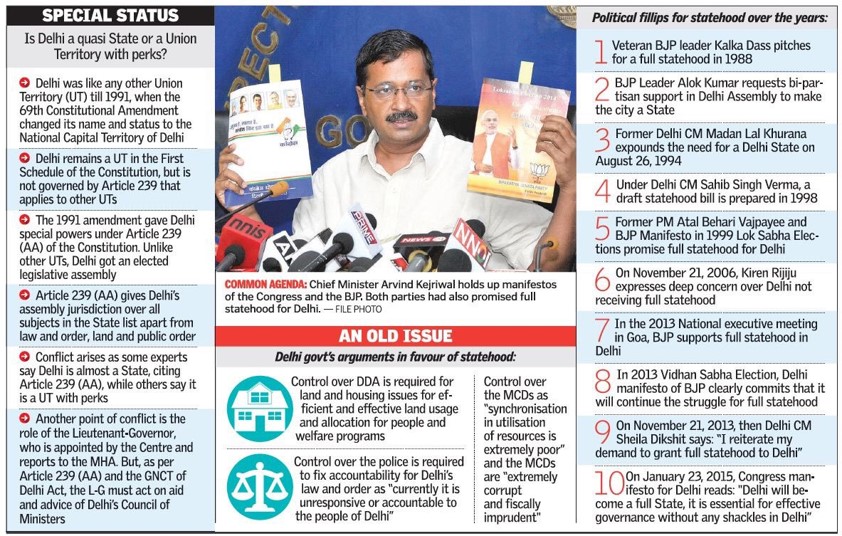

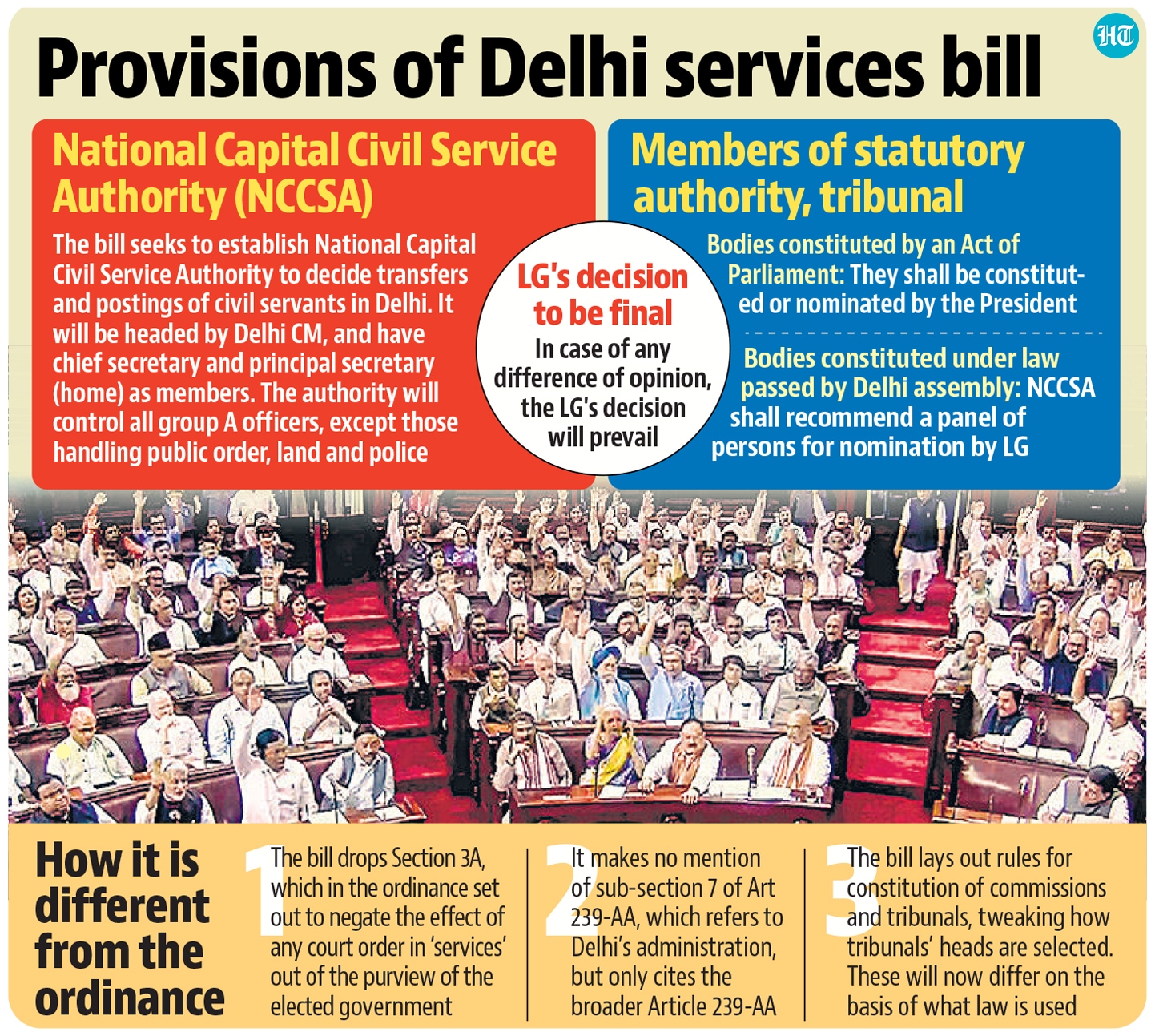
WHY IMPORTANT?
Delhi was classified as a Union Territory.
- As per Article 239 of the Constitution, the President is the top administrator of the union territories.
- Since India is only mentioned in Part XIV, the role of the Union Public Service Commission (UPSC) does not apply to all Indian territories.
- Unless Parliament states otherwise, each Union territory shall be administered by the President acting in the manner he deems appropriate through an administrator with a specified title.
Article 244
Article 244 of the Indian Constitution addresses Scheduled and Tribal Areas.

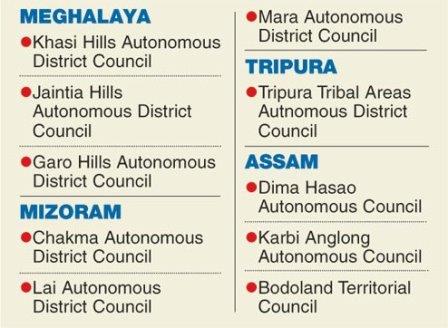

WHY IMPORTANT?
Extension of provisions of Part IX of the Constitution relating to Panchayats to Scheduled Areas of 10 States.
- Article 244 (1) defines Scheduled Areas as defined by the President of India and is mentioned in the fifth schedule of the Constitution.
- In India, 10 states have scheduled areas.
- Article 244 (2) of the Constitution declares areas in the states of Assam, Meghalaya, Tripura, and Mizoram as “tribal areas” in the Sixth Schedule.
We can't clear UPSC for you.
But with our personalised mentor support, you'll be ready to do it yourself.
Article 299
Article 299 of the Indian Constitution governs the manner and form in which contracts are made by the government and ensures:
- Clarity: Contracts are identified as government contracts, not personal agreements.
- Authorization: Only authorized individuals can finalize government contracts.
- Protection: Those involved are shielded from personal liability.

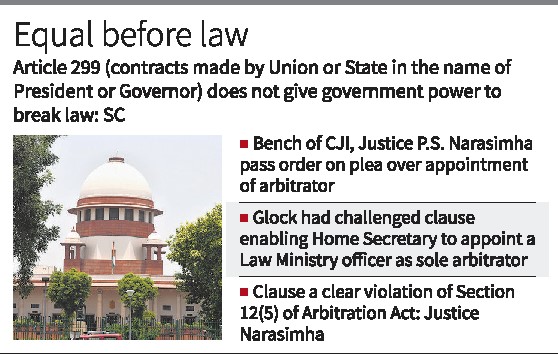
WHY IMPORTANT?
The Supreme Court said contracts made by the Union or State in the name of the President or Governor do not give the government power to break the statutory law.
- The case involving Glock Asia-Pacific Limited and Centre has a ruling whereby the court said that contracts entered into in the name of the President of India cannot grant immunity from statutory prescriptions.
- In 1954, the Supreme Court called for a definite procedure for making contracts by agents on the government’s behalf.
- In 1966, the Supreme Court laid down essential requirements for government contracts under Article 299.
Article 131
Article 131 of the Indian Constitution deals with the original jurisdiction of the Supreme Court of India.
Original Jurisdiction: This refers to the Supreme Court's authority to hear and decide certain types of cases directly, without them going through lower courts first.
Article 131 specifies that the Supreme Court has exclusive original jurisdiction over disputes between:
- The Central Government (Union) and one or more states.
- The Union and any state(s) on one side and one or more other states on the other side.
- Two or more states, as long as the dispute involves a legal right (whether based on facts or law).

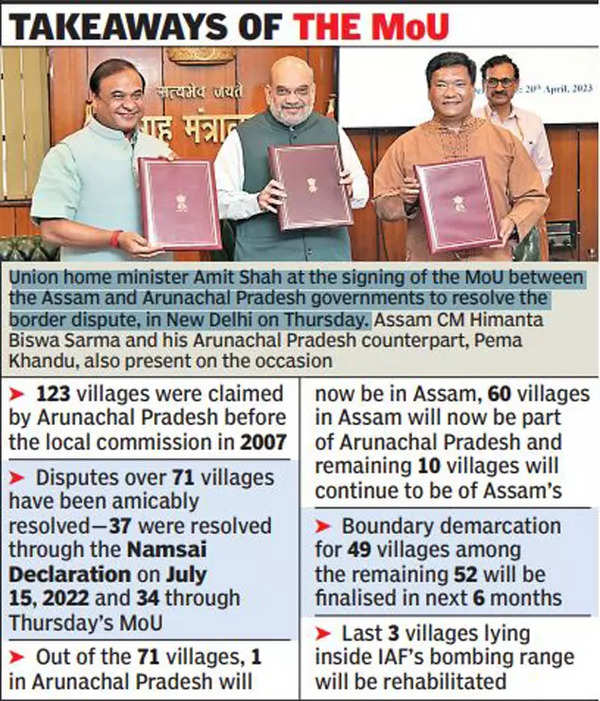
WHY IMPORTANT?
Assam and Arunachal Pradesh signed a memorandum to end the border dispute that has been going on since 1972.
- Other way of settling border dispute is via article 131 having original jurisdiction of the Supreme Court.
- Court hears disputes between the Government of India and one or more States, or between the Government of India and any State(s) on one side, and one or more other State(s) on the other.
Article 136
Article 136 of the Indian Constitution empowers the Supreme Court of India with the authority of special leave to appeal.
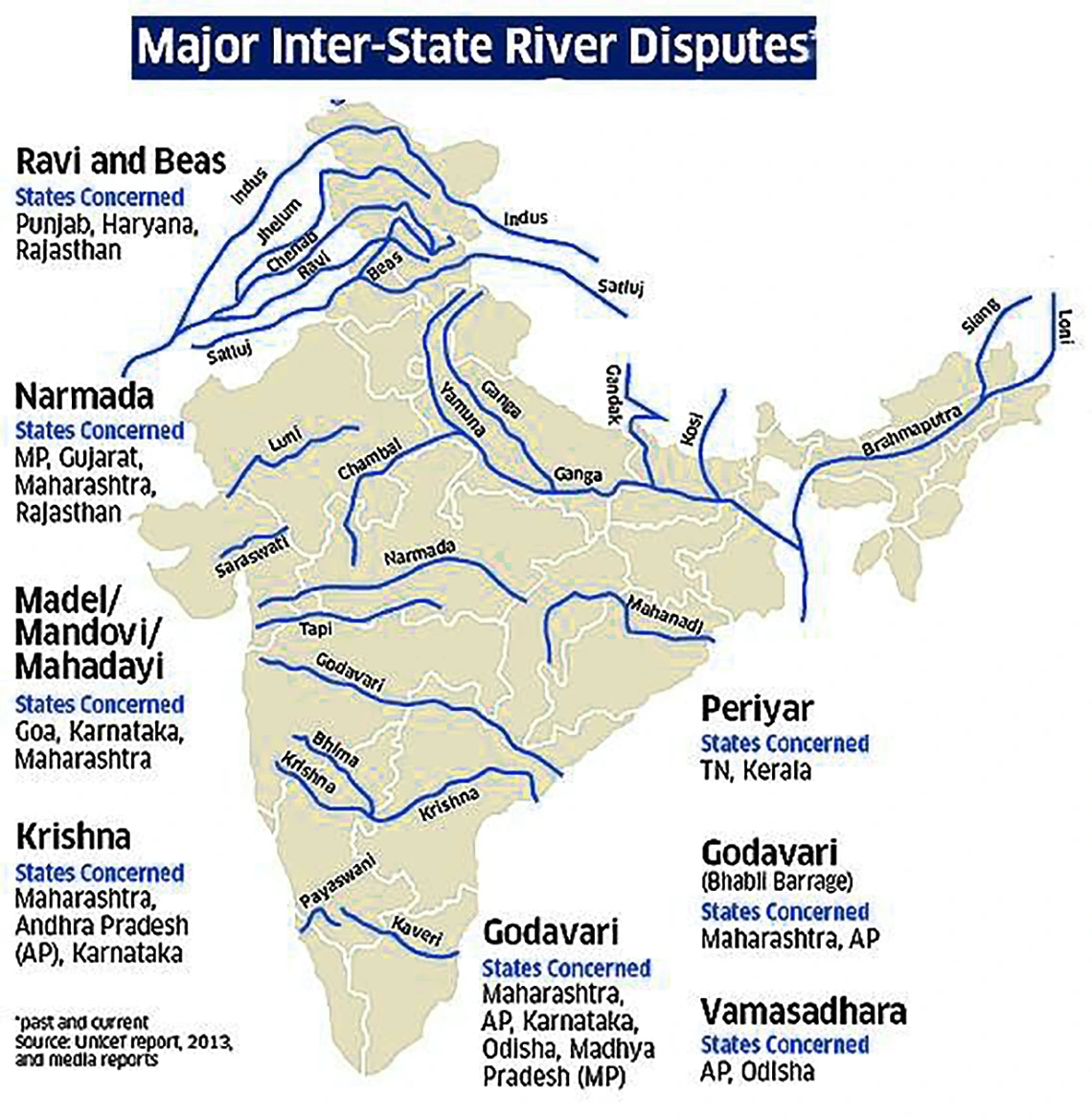
WHY IMPORTANT?
The terms of reference to Krishna Water Disputes Tribunal-II (KWDT-II) under the Inter-State River Water Disputes (ISRWD) Act, 1956 were approved by the cabinet.
- This was done under Article 262 deters the Supreme Court from adjudicating interstate river water disputes.
- But at the same time, Article 136 empowers the Supreme Court to hear appeals against the tribunal’s orders.
- This is by virtue of Special Leave Petition which gives the court extraordinary jurisdiction to appeal from any judgment passed by any court or tribunal in the territory of India with the exception of military tribunals and court martial.
Article 311
Article 311 of the Indian Constitution deals with the rules for government employees against dismissal, removal, or reduction in rank.
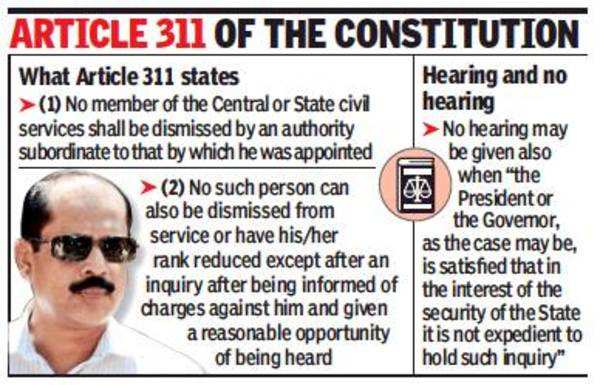
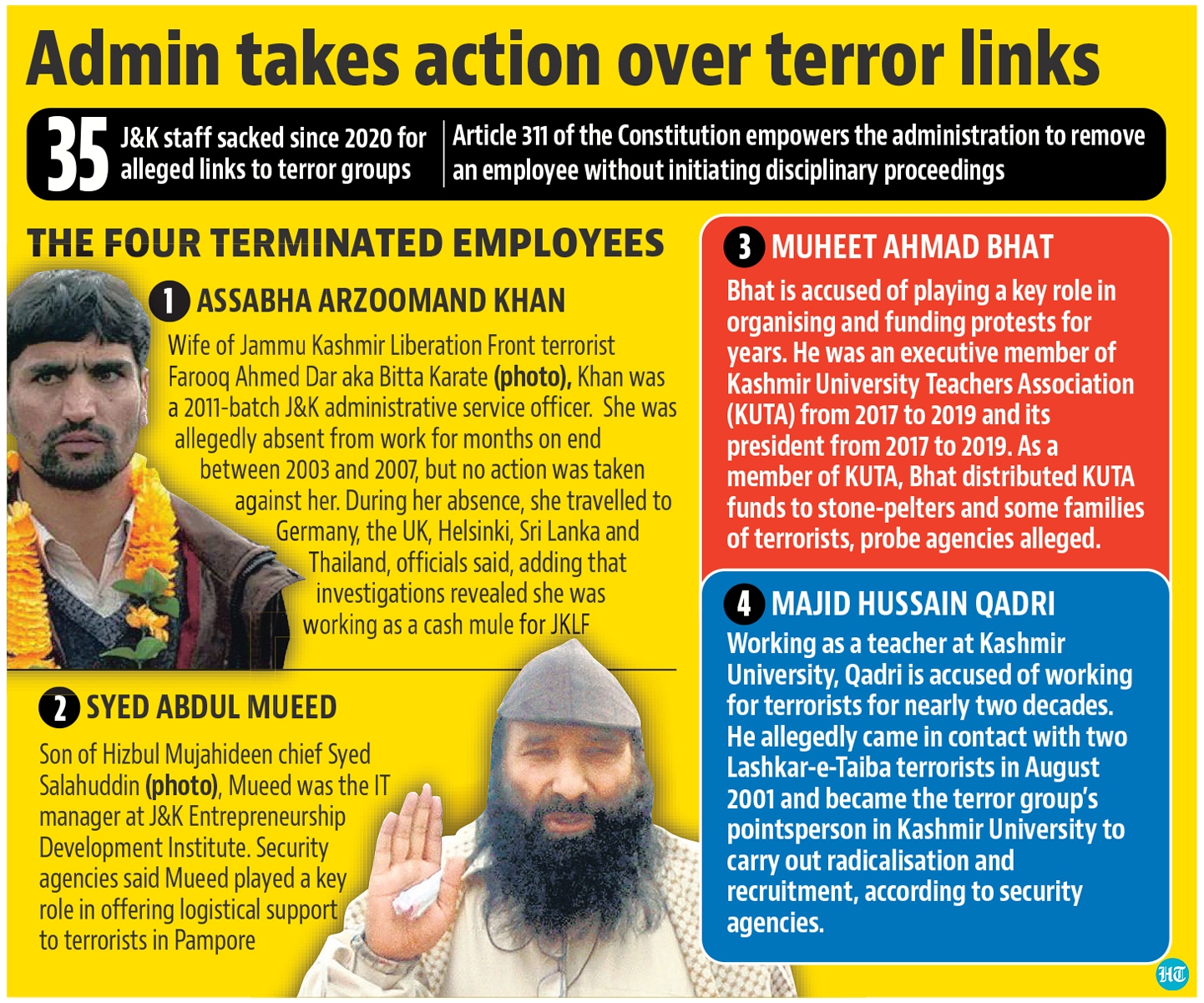
WHY IMPORTANT?
The Jammu & Kashmir government terminated four government employees under it for being a threat to the security of the state.
- No civil servant under Union or State shall be dismissed or removed by an authority subordinate to that by which he was appointed.
- Under Article 311 (2), no civil servant shall be dismissed, removed, or reduced in rank except after an inquiry where charges are duly informed and given a reasonable opportunity to be heard.
- However, Article 311 (3) allows the government to terminate employees without ordering an inquiry or giving them an opportunity to explain their position.
